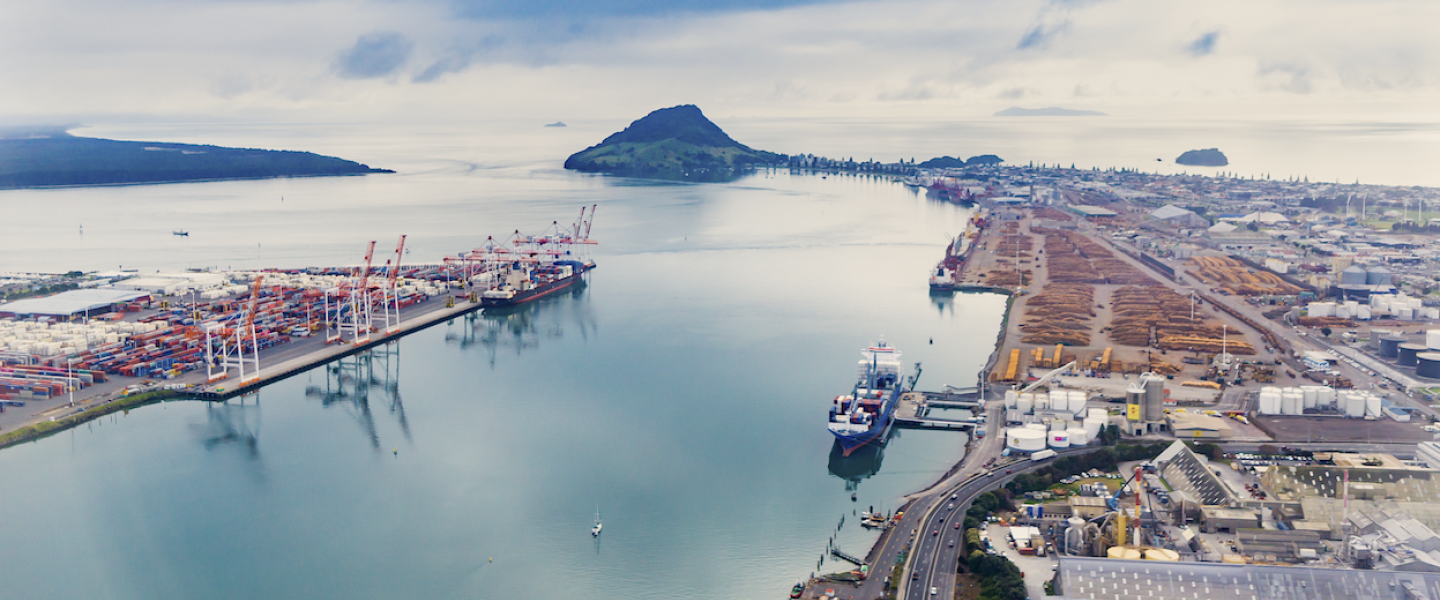Commentary. Human Rights at Sea has been working with welfare organisations, advocacy groups, membership bodies and state authorities in New Zealand to achieve sustainable onshore welfare facilities funded through existing maritime levies but unnecessary rivalries remains the 'elephant in the room'.
The current split centres around a dual approach which itself is in dispute. One side favours a centralised control mechanism. The other, a local port welfare direct funding governance mechanism for seafarer's needs.
At the heart of the issue, which few wish to publicly raise, is perceived control of seafarer welfare service provision in New Zealand and associated positioning of entities for primacy of role, functioning and profiling.
The result has been and continues to be entrenchment, which if not urgently addressed and settled will ultimately affect the quality of onshore welfare provision for the very seafarers upon which the country is reliant.
HUI - 22 August
On 22 August, Human Rights at Sea (HRAS) was invited to participate in a 'Hui', a Māori cultural term whose key functions of those gathering to participate are to collect, generate and disperse information and in so doing generate enlightenment.
The gathering was extensively attended with informed interventions from local port welfare members, service providers, port chaplains and union individuals.
The focus was to understand where New Zealand seafarer welfare services were at in terms of agreement and disagreement, to confirm scope and scaling of needs and therefore, future service provision. Further, the Hui aimed to align perspectives of funding interventions as the decision by Maritime New Zealand (MNZ) for the future funding model is imminently due.
MNZ Consultation
The Consultation on proposed changes to Maritime Levies and Oil Pollution Levies closed on 16 August and received extensive submissions, including from HRAS.
The background paper "Options for Delivery of Seafarer Welfare Services" supported the consultation and discussed how seafarer welfare services funded by maritime levies should be provided.
The consultation's focus was across multiple areas of concern, though importantly included supporting the provision of seafarer welfare services as part of ongoing government commitments required under the Maritime Labour Convention (MLC) 2006.
This process reflected the seminal independent HRAS Report of March 2020 New Zealand: Under-Funding of Seafarers’ Welfare Services and Poor MLC Compliance with supporting Counsel's opinion alongside the then Seafarers Welfare Board and local Labour Party activists, which resulted in a nine word amendment to the 1994 Maritime Transport Act.
HRAS Intervention
In his Hui intervention CEO David Hammond explained that: "HRAS's UN ECOSOC accredited human rights advocacy, investigation and research role is not direct welfare work, which it leaves to the frontline welfare subject matter expert organisations including unions with whom it variously liaises.
He stated that every coastal state needs to drive change to make sure government funding through existing maritime levies is fairly used for the sustainable funding of onshore welfare services as per the MLC 2006 guidance. This is the basis of the ongoing HRAS Maritime Levy campaign, and the importance that NZ achieving success in this matter will set the global precedent for change and future welfare funding models.
For this reason, complete transparency and full accountability in using public money (as well as donated funds) is a moral imperative for the credibility of the welfare/advocacy sector.
He further discussed the hoarding of data, including not sharing casework outcomes and case studies (individual data protection acknowledged) for advocacy purposes to drive sectoral change is a deliberate and oppressive power play by some entities dressed up as need for confidentiality, but which ultimately fails the seafarers.
The 'elephant in the room' in every country and region is that funding sourcing unfortunately creates direct competition and division throughout the maritime charity sector as entities jostle for primacy of public profile and access to future funds. Therefore, by having assured and sustainable funding through maritime levy sourcing this issue is largely removed and entities can instead focus on the seafarer's welfare first and foremost.
Public advocacy and direct exposure of key issues facing seafarers and fishers however tough they are to discuss, alongside access to independent funding - ultimately drives welfare sector independence and the freedom of voice for oppressed seafarers. This essential work must not be constrained by obtaining finances or being fearful that industry funding sources will be, or threatened to be removed, which is part of the current power imbalance keeping welfare entities 'in-check'."
Related Articles (Dated ordered oldest – newest)
New Zealand: Under-Funding of Seafarers’ Welfare Services and Poor MLC Compliance – March 2020 [Updated]: https://www.humanrightsatsea.org/new-zealand-under-funding-seafarers-welfare-services-and-poor-mlc-compliance-march-2020-updated
New Zealand Government to change maritime law to fund seafarer’s centres – 11 March 2022: https://www.humanrightsatsea.org/news/new-zealand-government-change-maritime-law-fund-seafarers-centres
Impact of seafarers’ welfare maritime levy now evident in New Zealand, says Transport Minister – 11 March 2022: https://www.humanrightsatsea.org/news/impact-seafarers-welfare-maritime-levy-now-evident-new-zealand-says-transport-minister
Counsel’s Opinion: New Zealand: Under-Funding of Seafarers’ Welfare Services and Poor MLC Compliance – 3 April 2020: https://www.humanrightsatsea.org/counsels-opinion-new-zealand-under-funding-seafarers-welfare-services-and-poor-mlc-compliance-3-0
New Zealand Transport Minister updates HRAS on Seafarer welfare funding legislation – 20 April 2022: https://www.humanrightsatsea.org/news/new-zealand-transport-minister-updates-hras-seafarer-welfare-funding-legislation
Seafarers Welfare Board for New Zealand fully concurs with HRAS Report – 22 April 2020: https://www.humanrightsatsea.org/seafarers-welfare-board-new-zealand-fully-concurs-hras-report
In Force. New Zealand Amends Legislation to provide assured Seafarer Welfare funding – 1 July 2022: https://www.humanrightsatsea.org/news/force-new-zealand-amends-legislation-provide-assured-seafarer-welfare-funding
New Zealand Government drives legislative change in support of Seafarers’ Centres – 15 October 2022: https://www.humanrightsatsea.org/news/new-zealand-government-drives-legislative-change-support-seafarers-centres
Maritime New Zealand Requests HRAS Advisory Opinion on a Future Model for Sustainable Seafarer Welfare Funding – 29 November 2022: https://www.humanrightsatsea.org/news/maritime-new-zealand-requests-hras-advisory-opinion-future-model-sustainable-seafarer-welfare
New Zealand Government Department Seeks Public Review of Maritime Levy Options for Seafarer Welfare Funding - 24 July 2023: https://www.humanrightsatsea.org/news/new-zealand-government-department-seeks-public-review-maritime-levy-options-seafarer-welfare
Contact: If you have any questions, please write to us at enquiries@humanrightsatsea.org
About Sharing. We welcome the use and dissemination of our work with proper accreditation. Please ensure that our Terms of Use are conformed with at all times.
